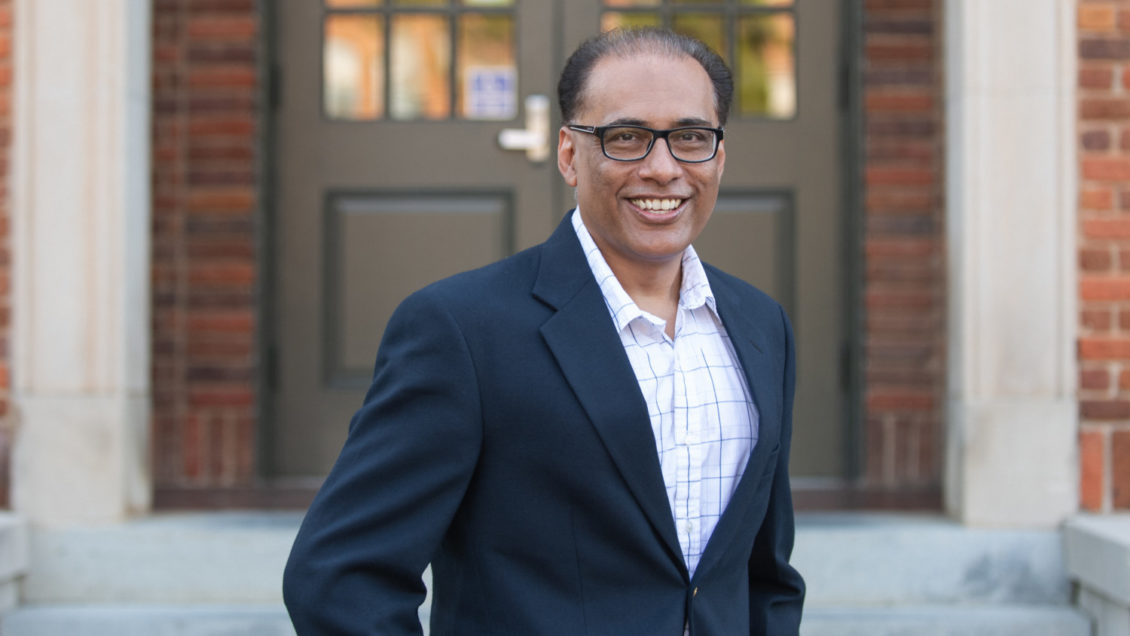A Clemson University graduate has returned to his alma mater as one of the nation’s few professors to specialize in protecting the electrical grid and other power systems from disturbances that can lead to blackouts.
Sukumar Brahma, who received his Ph.D. in electrical engineering from Clemson in 2003, is the new SCE&G Distinguished Professor of Power Engineering.

He comes to Clemson from New Mexico State University, where he served as the William Kersting Endowed Chair Professor.
Brahma said it’s amazing for he and his wife, Vibha, to be back in Clemson.
“We have so many beautiful memories,” he said. “When I got this offer, it took a little while to process. If there was one place I wanted to move, it was Clemson.”
Bill Turner, vice president of electric operations for SCE&G, said the fundamental classes that Brahma teaches will equip students with a basic knowledge of electrical engineering and the ability to apply it to the utility’s system.
“These skills are extremely important and used by our operating personnel on a daily basis,” Turner said. “We have a continuous need for engineers who are trained in power systems protection. I believe Dr. Brahma is going to be a great ambassador for Clemson University and for SCE&G.”
With his return to Clemson, Brahma is bringing his education and experience full circle.
The last faculty member to serve as SCE&G Distinguished Professor of Power Engineering was Elham Makram, who taught three of Brahma’s classes when he was a Ph.D. student. Makram’s late husband, Adly A. Girgis, was Brahma’s Ph.D. advisor.
Makram, who retired in December 2016, said Brahma is a great fit for Clemson. Her late husband would be very happy to see his student back to work at the university, she said.
“He understands the research we do, and he’s familiar with the university,” she said “He was really a good student.”
Brahma said that when he was working toward his Ph.D., the conventional wisdom was that power-system protection was a mature field. He remembers some of his colleagues advising him to switch to computer engineering, but he stuck with what he enjoyed.
The decision worked in his favor. Smart-grid technologies and the introduction of more renewable energy into the grid have reinvigorated the field.
“I see a lot of people who never worked in protection starting to work in protection simply because they see that the current scenario– the integration of renewables– has had a strong impact on protection,” Brahma said. “I’ve been lecturing about that on an almost monthly basis at different places.”
Turner said that power system protection gives students a chance to help incorporate solar, wind and other renewable energy into the grid.
“Many students that I’ve met and interviewed want to make a difference in their field of study, and this is one way for them to do so,” Turner said. “It is a very exciting time in our industry. New technology is being utilized to monitor and control the delivery of energy which increases the resiliency of the system and reliability to our customers. ”
The distinguished professorship is one of the several ways that SCE&G supports Clemson’s students and faculty. The utility also selects students for cooperative-education positions that give them two or three semesters of real-world experience and often leads to jobs after they graduate.
SCE&G is also a member of the Clemson University Electric Power Research Association, an organization of utilities and manufacturers that support graduate students to perform research in power systems. Brahma, who was part of the association as a student, has become an integral part of it as a faculty lead.
Daniel Noneaker, chair of the Holcombe Department of Electrical and Computer Engineering, welcomed Brahma back to campus.
“Dr. Brahma is an excellent scholar and educator who specializes in a field critical to industry,” Noneaker said. “He is excited to return to Clemson and to carry on the tradition of excellence in power systems research and education. I thank SCE&G for all its support, including its help in making Dr. Brahma’s position possible.”
Get in touch and we will connect you with the author or another expert.
Or email us at news@clemson.edu

